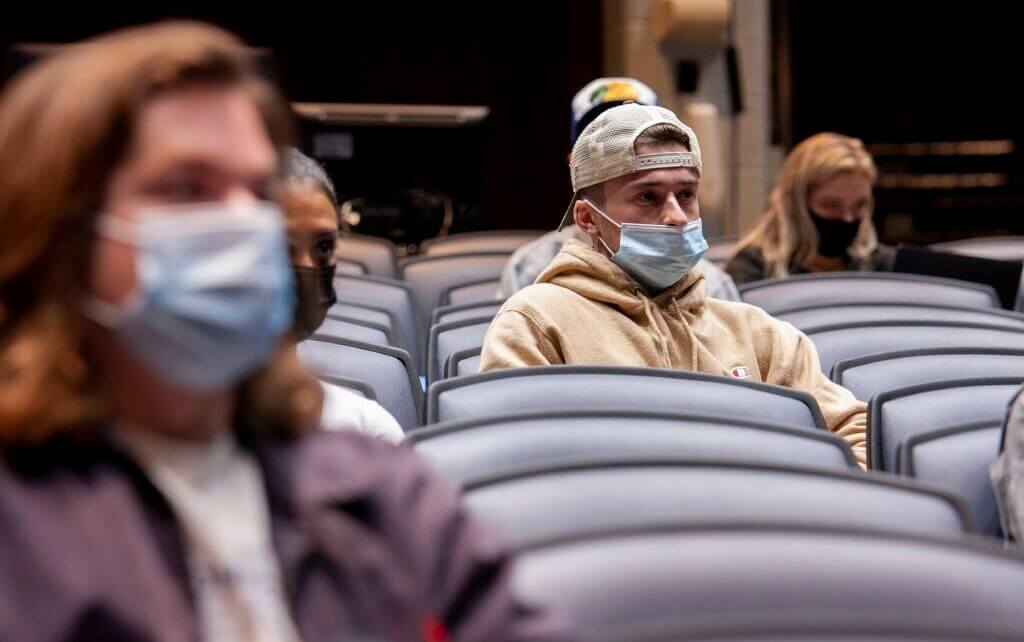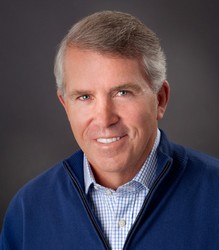New Jersey Governor Phil Murphy announced that the indoor mask mandate will be lifted for students, staff, and visitors in schools and childcare centers in a press conference held on Monday, Feb. 7.
The change in COVID protocols, effective March 7, comes in light of a notable decline in cases across the state of New Jersey. Murphy also cited a decrease in hospitalizations and an increase in vaccinations among school-age populations as rationale for discontinuing the universal mask mandate in schools.
No decision has been made about the future of the masking mandate at Monmouth University, although the booster dose of the vaccine has been made required for all students and faculty.
“Since the governor made this announcement on Monday, we have been actively involved in conversations about the implications of lifting the mask mandate,” said Mary Ann Nagy, Vice President for Student Life and Leadership Engagement. “It’s important for us to gather feedback from the community and synthesize it to help us make the best decision we can.”
Students in New Jersey have been required to wear masks since September of 2020, following a four month lockdown in which schools transitioned to remote learning to accommodate health and safety concerns at the time. Multiple reports from the Center for Disease Control and Prevention (CDC) have confirmed that indoor masking decreases the likelihood of testing positive for COVID and is effective at preventing in-school transmission.
However, healthcare officials are now suggesting that it may be time to transition away from the mask requirement for students as cases across NJ continue to decrease. Paired with the widespread availability of the COVID vaccine, many are questioning whether or not masks are still necessary.
“I think that it’s a tough call because people are so tired of COVID and tired of wearing masks, and I can understand them wanting to lift the mask mandate,” said Ann Marie Mauro, Ph.D., Dean and Professor of the School of Nursing. “Yes, the cases are coming down, but they’re only just coming down.”
According to the CDC, 74 percent of NJ residents are vaccinated, although only 32 percent have received a booster dose on top of their initial vaccines. Of this vaccinated population, the majority of them are over the age of 12. Only 31 percent of children ages five to 11 are fully vaccinated, which raises concerns about lifting the in-school mask mandate for students who fall within this largely unvaccinated age group.
“College age students have had a longer period of time with access to the vaccine. Younger age groups have had time, but not as much as college students have had. Anyone below the age of 11 has virtually no time to get it,” said Nagy.
“Most children are not vaccinated yet, and I think therein lies the challenge with lifting the mask mandate at this time,” added Mauro. “I’d like to see the vaccine levels go higher and have a little more distance from the wave of Omicron. In March, [lifting the mandate] may be fine, but following the data is what is important here.”
“Is it premature? I don’t know, I think we’re going to see,” commented Nagy. “They are clearly seeing that there is data to support that we are beyond the peak of Omicron and that things are improving. We’re in a different position now because we’re two plus years into this, we have easy access to vaccines, we have a booster in place with equally easy access, and it even appears that testing is more accessible now than it was.”
Many note that masking was never intended to be a permanent solution to stopping the spread of COVID, but rather a temporary fix to accommodate the conditions of the pandemic and allow for a safe transition back to in-person learning. Now, critics of the mask mandate argue that maintaining masking policies causes more harm than good, especially for students’ mental health.
“While there are many health benefits to wearing masks, we know there are some social challenges associated with wearing them,” said Mauro.
Beyond addressing social challenges presented by mask mandates, loosening COVID restrictions also indicates an important step toward learning to live with the virus.
“I think we’re trying to find ways to look at the science and look practically at how we can live with having a COVID endemic in our society, similar to the common cold or the flu, and how we can minimize the risk around that,” said Mauro. “I think that’s what people are trying to do to move on from this.”
Although the need for masks on campus is still being assessed, other COVID restrictions are being lifted in what appears to be the start of a transition back to normalcy for Monmouth students. Student clubs and organizations in particular have been requesting permission to hold events in-person and start traveling again, many of which have been granted in light of improving pandemic conditions.
“Some of the stuff you’re already starting to see is trying to return activities more to in person versus virtual. We held our first commencement indoors since I can’t even remember. We’re planning for commencement again in May. This weekend, the Model UN Team is up in Boston for a competition. There was a ski trip to Lake Placid in January, and there’s going to be another one to Killington for spring break,” said Nagy.
“Will next year be different? I’m going to hope that it will be, and I’m going to expect that it will be because we’re going to work to manage it in a different way and it won’t manage us,” Nagy concluded.



